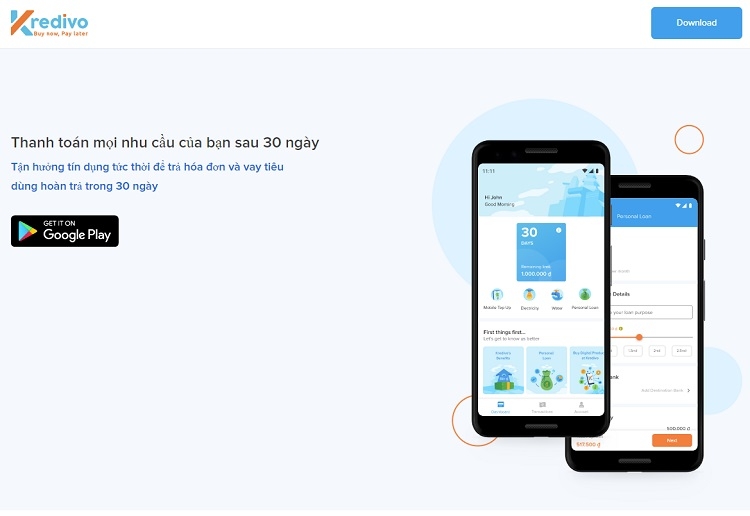Indonesian startups penetrate blossoming Vietnam
 |
| Indonesian startups penetrate blossoming Vietnam |
Indonesia’s buy now, pay later (BNPL) startup Kredivo last week announced its foray into Vietnam by forming a partnership with Vietnam-based family investment office Phoenix Holdings. The Vietnamese entity, Kredivo Vietnam JSC, will leverage Kredivo’s extensive BNPL expertise as well as Phoenix Holdings’ broad local network and know-how.
Kredivo CEO Valery Crottaz said, “The launch of Kredivo in Vietnam, our first market outside of Indonesia, is another key achievement and milestone for the business this year. Vietnam came as a logical choice given the low penetration of credit cards in the country and a rapidly growing middle class; the fast-growing e-commerce market; and the similarities in demographic and consumption patterns to Indonesia.’’
Trung Anh Nguyen, CEO of Phoenix Holdings said, “The partnership with Kredivo came very naturally and made a lot of sense for both parties. Phoenix Holdings has a deep understanding and network across Vietnam while Kredivo is the leading BNPL platform in Indonesia, and poised to become the leading BNPL platform in Vietnam and the region, with a clear vision to provide access to fast and affordable credit to 10 million individuals across the region by 2025.”
Likewise, East Ventures, Gojek’s venture capital arm, also participated in the $2.7 million funding round of Vietnamese digital media startup Vietcetera at the end of August. Melisa Irene, partner at East Ventures, told VIR, “This is our fourth investment in Vietnam, after CirCo in 2018, Sendo in 2019, and Kim An in 2020. While our fund’s majority investment is in Indonesia, we also look at opportunities in other countries in Southeast Asia.”
“In Vietnam, we are looking for categories that we understand well in Indonesia, like coworking spaces, lending, commerce, and media,” Irene added.
She emphasised that Vietnam has the second-largest population after Indonesia in ASEAN, with a fast-growing sizeable digital economy, making it an attractive destination for regional expansion. Moreover, Vietnam is globally recognised for strong technical human resources.
Indeed, Kredivo and East Ventures are only following a long line of Indonesian startups that have ventured into Vietnam in the recent years. Gojek, Indonesia’s very first unicorn, is already a familiar brand all across Vietnam. On August 19, it introduced GoCar – its four-wheel ride-hailing service – in Ho Chi Minh City. The service is available exclusively to frontline healthcare workers for now, and will be expanded to serve the general public later this year. Gojek also plans to roll out cashless payment services before the year is over.
Another Indonesian unicorn, J&T Express, also ramped up its presence in Vietnam to serve the huge e-commerce delivery demand. The Jakarta-based company currently boasts more than 1,900 post offices and employs around 25,000 employees nationwide.
Commenting on the expansion of Indonesian startups in Vietnam, Nguyen from Phoenix Holdings said that Vietnam has become one of the most promising markets in Southeast Asia given its striving economy, young and urban middle class, and rapid digitalisation.
Thanks to significant local and foreign investments, with a particular focus on financial services, a number of homegrown fintech companies have achieved strong growth. In addition, Nguyen said that Vietnam’s pro-business and stable political environment combined with its robust legal framework have also been fostering investment partnerships to the benefit of Vietnamese consumers, the financial industry, and the country’s long-term development.
Indeed, the similarities between Vietnam and Indonesia allow startups to find success and scale up in both markets. Irene from East Ventures noted that both regions have huge young population and similar internet penetration rates (70.3 per cent in Vietnam and 73.7 per cent in Indonesia as of January 2021).
She noted that the two populations of the countries also have similar age structures with young people accounting for more than half, with about 55 per cent in Vietnam and 70 per cent in Indonesia.
“Digital adoption in the early days centres upon big cities with close to 10 million in population: in Jakarta then Jabodetabek (greater Jakarta area) in Indonesia and Ho Chi Minh City and Hanoi in Vietnam. It helps us to roughly predict the directions. We think Vietnam’s digital economy might be 3-4 years behind Indonesia but the gap might be closed relatively fast,” she noted.
What the stars mean:
★ Poor ★ ★ Promising ★★★ Good ★★★★ Very good ★★★★★ Exceptional
Related Contents
Latest News
More News
- VNPAY and NAPAS deepen cooperation on digital payments (February 11, 2026 | 18:21)
- Vietnam financial markets on the rise amid tailwinds (February 11, 2026 | 11:41)
- New tax incentives to benefit startups and SMEs (February 09, 2026 | 17:27)
- VIFC launches aviation finance hub to tap regional market growth (February 06, 2026 | 13:27)
- Vietnam records solid FDI performance in January (February 05, 2026 | 17:11)
- Manufacturing growth remains solid in early 2026 (February 02, 2026 | 15:28)
- EU and Vietnam elevate relations to a comprehensive strategic partnership (January 29, 2026 | 15:22)
- Vietnam to lead trade growth in ASEAN (January 29, 2026 | 15:08)
- Japanese business outlook in Vietnam turns more optimistic (January 28, 2026 | 09:54)
- Foreign leaders extend congratulations to Party General Secretary To Lam (January 25, 2026 | 10:01)

 Tag:
Tag:




















 Mobile Version
Mobile Version